

| NEWSLETTER |
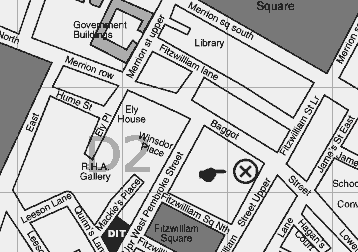

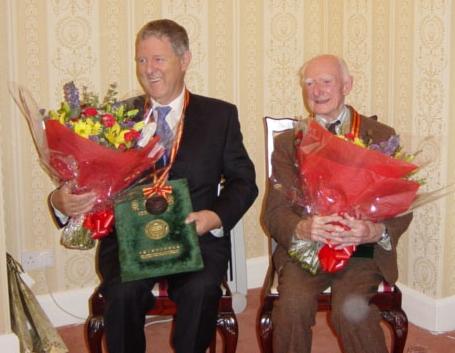
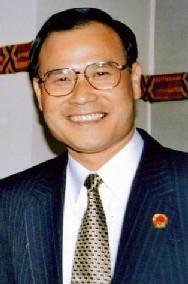 |
On behalf of the committee and members of the IrishChinese
Cultural Society, we would like
to express a warm welcome to His Excellency Liu Biwei as the new Chinese Ambassador to Ireland.
We wish him céad míle fáilte (one hundred thousand welcomes), and we hope he that he will enjoy his posting
to Ireland.
The Irish-Chinese Cultural Society has always worked closely with the Chinese Embassy to promote Chinese Culture in Ireland. In this regard, Ambassador Liu Biwei has a hard act to follow, as his predecessors had developed excellent ties with our Society and with the many other societies and associations promoting trade, education and cultural links between our two countries. Ambassador Liu Biwei was born in Hunan Province. His last posting was as Chinese Consul General in New York. |
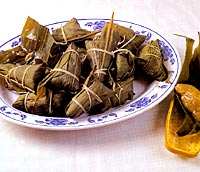

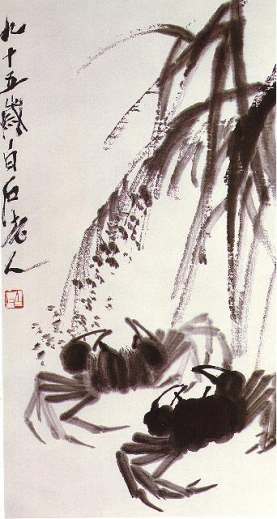 |
This long-lived (1863-1957) and much admired artist (Pinyin name Qi Baishi) was born in Hunan into a farming family. He was expected to work in the fields but ill health made this impossible. Still at home, he trained himself to cut seals in stone used for stamping documents and paintings, even collecting the stone for this work. With the discovery of a 17th century book called "The Mustard Seed Garden Manual," which he avidly studied, he at last found his métier, for this book instructed, not in gardening, but painting. Painting on paper in ink and colour washes, his paintings of flowers, vegetables and insects are delightfully sensitive, almost abstract. In his paintings during times of war, China's enemies are often depicted as fighting insects or crabs. The observer is left in no doubt as to Chi's political views. | ||
| Chi's final years were spent as professor of art at Peking University. During his lifetime, he is thought to have painted 30,000 "ink on paper" pictures. Whereas many museums have works by Chi, it is not so easy to see them except in books, unless one is fortunate. For this talk, we resorted to the non-tech method of handing around mounted prints for members to examine. | |||
| As well as Chi's work, Jane,amateur art historian and watercolorist, touched on the importance of the inked brush-work calligraphy on Chinese paintings, which can be as expressive as the painting and enhances it. The talk ended with suggestions as to where one might find museum collections of Chinese art. | 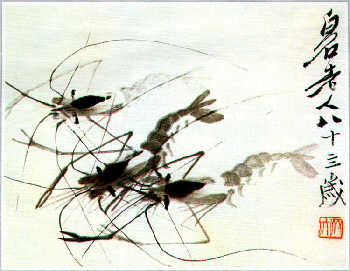 | ||
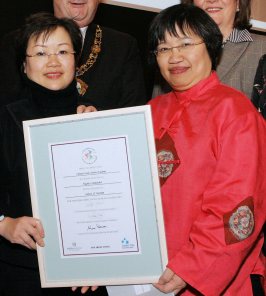
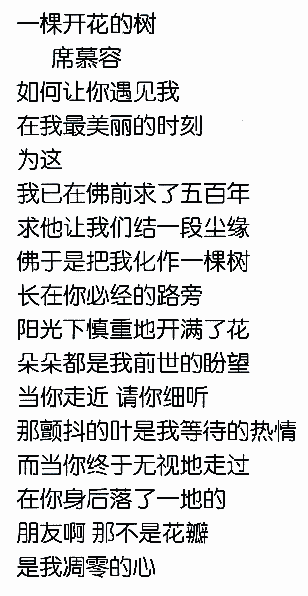 |
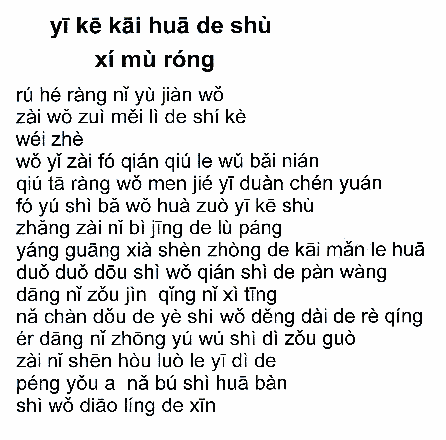 |
|
| ||
 |
||
The Rat |
||
| Characteristics: Intelligent # Practical # Passionate # SelfInterested # Sentimental |
 |
Suitable Careers: Auctioneer # Money Lender # Lawyer # Antique Dealer # Car Salesperson # Financial Advisor |
The RatRats are cheerful and industrious. They bounce back fromsetbacks quickly and easily and even when they are down theymanage to keep smiling. Because of their reputation for beingselfmotivatedthey are often mistrusted, but they providevery well for their family, love their partners loyally and makegood parents. They love to haggle for bargains and genuinelyadore collecting money- and why not? Rats do always have ahidden agenda though, which can lead to them not beingtrusted- sometimes quite rightly so, for the rat fends primarilyfor itself.Rat CharacteristicsRats do not have a wider social conscious. They look aftertheir own first. The rat is passionate and sentimental and regardsa close, big family, provided for, as their paradise. Ratslike company and can be very practical. They're not given tomuch introspection. They can be very generous to their lovedones and have good taste.Love, Sex, and RelationshipsRats are sentimental, sensual and warm lovers. They will goout of their way to please their lovers and like to take the initiativewhen it comes to seduction. They are naturally faithfulbut need to be kept interested. As rats are naturally curious, |
spicing up your lovemaking
with dark secret places, candlelight,
good wines and plenty of surprises will ensure a rat stays
with you forever. Allow it to be boring and the rat will vanish.
Business, Friends and ChildrenRats are the hardworking entrepreneurs of the animal kingdom, and are clearly focused on money and success. They are outwardly charming and quick, and can fool people into thinking that they have the best interest of others at heart, but that is far from the truth. Rats are only interested in themselves and what they can acquire, steal, buy, obtain and accumulate. They hate to fail at anything and will always strive for success, measuring that success by how much they have acquired in material terms. This doesn't make rats bad people- merely greedy. They can turn any situation to their own advantage. Rats are usually popular and genuinely well liked, and usually have many friends. They adore their own children.Earth Rat 2008This serious prudent rat likes practical problems with practical solutions. Although a bit of a plodder, it is usually successful, and makes a good accountant or financial advisor |
Rat with: |
|
| Rat: | A good combination as rats need a lot of attention- and are capable of giving lots in return. These two do well together in business or a relationship. |
| Ox: | A well balanced and harmonious partnership. The ox is a good listener and the rat will entertain him or her extremely well. |
| Tiger: | As neither of these two knows how to comprise, this combination will create sparks. The relationship will be stormy. |
| Hare: | The rat is a control freak while the hare dislikes control of any sort. Not a good combination. |
| Dragon: | A good relationship despite the apparent difference. Each will support the other in their schemes and will be able to give the other the attention they crave. |
| Snake: | The snake's love of secrets and mysteries will inflame the rat to fits of jealousy and distrust. Not a good combination. |
| Horse: | Neither partner will get a word in edgeways- but if either can learn to listen the relationship does have potential. |
| Goat: | If the rat is allowed control and be in charge then this could be successful union. However, if the goat wants any freedom, the relationship is doomed. |
| Monkey: | These two characters are similar in personality and do well together. They are both starters rather than finishers and so will need to make allowances for that to do well together. |
| Rooster: | With two control freaks, this combination just can't work. Neither partner will be interested in the other and both will demand to be in charge. |
| Dog: | A good team. The rat's control and the dog's loyalty make a good combination, although they both like to talk a lot so the relationship could be a noise one. |
| Pig: | If the rat can earn it, the pig can spend it. As long as both know where they stand, this is a good partnership |
The Earth adds solidity to the Rat's personality. An Earth Rat is conventional and a good achiever who likes to establish
roots early in order to make a secure future for himself and his family. These Rats have the typical Rat ingenuity and mental
capacity, but a strong sense of reality often alludes them preventing them from going after anything that could be impromptu.
Earth Rats are honorable and love to be stabilized. Slowly and steadily acquiring wealth gives them a sense of
inner peace. Although they are capable of being stingy with their finances, they do possess warm feelings for their family
and friends. |
| Born in the year of the Rat: Mozart, Shakespeare, George Washington, Marlon Brando, Samuel J Jackson, Antonio Banderas |
Years Of The Rat: 1900, 1912, 1924, 1936, 1948, 1960, 1972, 1984, 1996, 2008 |